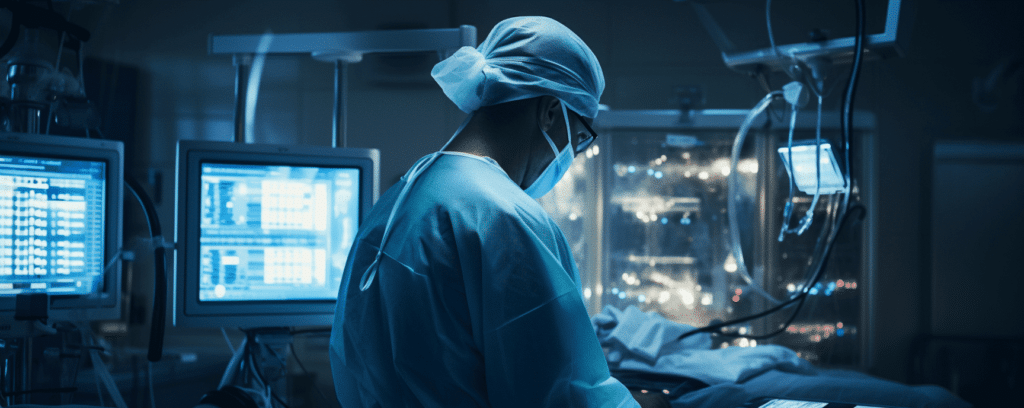Understanding Your Car Accident Injury
Last updated Tuesday, December 5th, 2023

Car accident injury can be life-altering, affecting millions of people each year. Understanding the symptoms, recovery process, and prevention tips is essential to minimizing the physical and emotional consequences of these injuries. We’ll delve into the prevalence, types, and treatment of car accident injury, as well as tips for preventing accidents and coping with their emotional impact.
The Prevalence of Car Accident Injuries
Car accident injuries are a frequent occurrence, impacting millions of individuals annually. Numerous factors contribute to car accidents, from design defects in vehicles to drivers being distracted by activities like texting, eating, or grooming while behind the wheel. The consequences of these accidents can be severe and long-lasting, with injuries ranging from minor soft tissue injuries to severe head injuries and even fatal car crashes.
 The emotional and physical impacts of car accidents can be significant. Some common consequences experienced by car accident victims include:
The emotional and physical impacts of car accidents can be significant. Some common consequences experienced by car accident victims include:
- Depression
- Anxiety
- Sleep disturbances
- Pain
- Loss of enjoyment in life
Immediately seeking medical attention after a car accident is imperative because some injuries, like internal bleeding, might not be noticeable right away and could become life-threatening without timely treatment.
Types of Car Accident Injuries
Car accident injuries can range from common car accident injuries such as:
- Head and back injuries
- Neck and chest injuries
- Fractures and broken bones
- Internal injuries and organ damage
Each type of injury can have varying degrees of severity and require different treatments and recovery processes.
In the subsequent sections, these injuries will be elaborated upon.

Get Your FREE Case Review,
In Person or Virtually Online
Head and Back Injuries
Head and back injuries, such as traumatic brain injuries, concussions, spinal cord injuries, and facial injuries, can result from car accidents. These injuries may require extensive medical treatment, including drug therapies to address bleeding or seizures, and surgery to reduce swelling or bleeding in the brain and pressure inside the skull. In some cases, head injuries can lead to long-term effects, such as alterations in movement, sensation, personality, and cognitive function, or even depression and other serious mental illnesses.
Back injuries resulting from car accidents can likewise be quite severe and have long-term effects. Some common types of back injuries include:
- Spinal cord injuries, which can result in partial or total paralysis below the level of the injury
- Herniated discs, which can cause pain and discomfort
- Fractured vertebrae, which can lead to instability and limited mobility
The recovery process for these injuries often involves a combination of medical treatment, physical therapy, and emotional support to ensure a successful recovery.
Neck and Chest Injuries
Neck and chest injuries are common in car accidents and can cause long-lasting pain and discomfort. Some typical neck and chest injuries associated with car accidents include:
- Whiplash
- Shoulder injuries
- Heart attacks
- Broken ribs
The potential consequences of neck injuries from car accidents can be severe, such as disk injury and cervical dislocation.
Promptly recognizing the symptoms of neck and chest injuries and seeking medical attention is of utmost importance. Informing medical staff if you experience chest pain after a car accident is crucial to determining the cause and providing appropriate treatment.
Fractures and Broken Bones
Fractures and broken bones, often resulting in arm and leg injuries, are common in car accidents, affecting various parts of the body, including legs, ribs, arms, ankles, wrists, and pelvis. The telltale signs of broken bones include pain, swelling, bruising, and difficulty in movement of the affected region. Depending on the severity of the injury, treatment options for broken bones can range from non-surgical treatments like casting to surgical procedures such as fusion, implant, and vertebroplasty.
Broken ribs can lead to further complications, such as puncturing of blood vessels or internal organs. If you suspect any fractures or broken bones, immediately seeking medical attention is vital for an accurate diagnosis and proper treatment.
Internal Injuries and Organ Damage
Internal injuries and organ damage can occur due to blunt force or penetrating injuries in car accidents. The spleen, liver and small intestine are the organs that are affected more often. However, any organ can be damaged as well. Blunt force injuries occur when the body is struck by flying objects or forcefully pressed against an object, while penetrating injuries occur when a foreign object penetrates the body.
Indications of internal injuries and organ damage may involve abdominal bruising, which could be an indication of an abdominal hematoma caused by the seat belt impacting multiple internal organs. You must seek immediate medical attention for internal injuries and organ damage, and never attempt to remove a foreign object from a wound without medical supervision.
Symptoms and Signs of Car Accident Injuries
Timely diagnosis and treatment of car accident injuries hinge on recognizing the symptoms and signs. Some injuries may not be immediately apparent, and the initial trauma of the accident may mask the symptoms of more serious injuries. For example, fractures and broken bones resulting from car accident injuries are typically diagnosed through a combination of physical examination and imaging tests such as X-rays, CT scans, and MRIs, which assist physicians in assessing the scope and location of the fracture.

- Additional tests or imaging to assess the extent of injuries
- Physical therapy or rehabilitation to aid in recovery
- Pain management techniques or medications to alleviate discomfort
- Referral to specialists for further evaluation or treatment
These recommendations are important to address any underlying issues that may not have been immediately evident following the accident.
Recovery Process for Car Accident Injuries
The process of recovery from car accident injuries can differ based on the type and severity of the injury. Often, the recovery process involves a combination of medical treatment, physical therapy, and emotional support to ensure a successful recovery. For example, the average recovery time for whiplash can range from a few weeks to several months or even years, depending on the individual.
Long-term treatment for mental and physical rehabilitation may be necessary for individuals who have suffered significant injuries, such as the loss of a limb. Keeping all medical appointments is vital to document the extent of your injuries and the future necessity of medical care and accommodations.
Tips for Preventing Car Accident Injuries
To minimize the risk of car accidents and injuries, prevent measures like practicing safe driving habits, consistently wearing seatbelts, and keeping your vehicle in good condition are essential. Being vigilant while driving, especially at night, and using headlights in the absence of street lighting can also help prevent accidents.
Seatbelts play a critical role in preventing car accident injuries by providing safety and security to occupants during a crash. They reduce the chances of being ejected from the car and lessen the severity of the accident. Research has demonstrated that wearing a seatbelt can reduce the risk of fatal injury by up to 45%. It is one of the most important decisions you can make to safeguard yourself while traveling by vehicle.
Legal Rights and Compensation for Car Accident Injuries
Knowing your legal rights and pursuing compensation for car accident injuries can help ease the financial strain caused by medical bills, lost income, and other damages. Consulting a personal car accident injury lawyer is advisable to receive the appropriate legal assistance and ensure that you obtain the compensation you deserve.
Compensation may be awarded for damages and expenses, such as long-term injuries and future costs. The average compensation for bodily injury claims resulting from a car accident is $20,235. By securing equitable remuneration, car accident attorneys can help victims recover financially and move forward with their lives.
Coping with the Emotional Impact of Car Accident Injuries
To cope with the emotional aftermath of car accident injuries, consider seeking professional assistance like therapy or support groups. These can help address the psychological impact of the accident and facilitate healing, including dealing with post traumatic stress disorder. Therapy can assist in managing the emotional trauma post car accidents by offering support, understanding, and guidance, helping individuals process their emotions, regulate anxiety and depression, and create coping strategies.
Support groups provide a secure environment for individuals to express their emotions and share their experiences, building a supportive network and offering validation and understanding from those who have had similar experiences. Furthermore, support groups can provide guidance, coping mechanisms, and access to professional assistance for those who require it.

